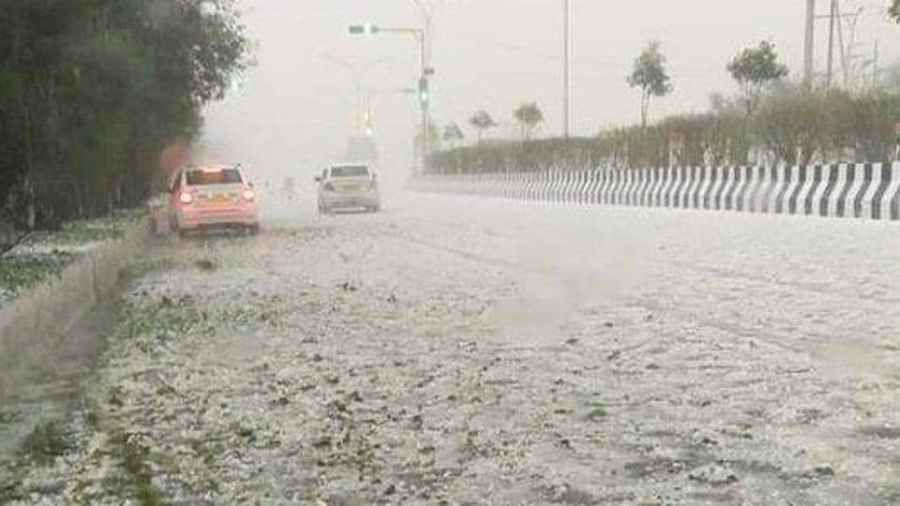Hailstorm lashed parts of Delhi on Sunday, bringing the maximum temperature three notches below the season's average to 28 degrees Celsius, the India Meteorological Department (IMD) said.
The minimum temperature settled at 15.4 degrees Celsius, a notch below the season's average, they said. Hailstorms were reported at various parts of the national capital including Palam, Chilpighat and Ayanagar, the IMD said.
The relative humidity oscillated between 96 per cent and 66 per cent, a senior IMD official said.
The weather department has predicted a generally cloudy sky for Monday.
The IMD has forecast thunderstorms, hailstorms and light rain with winds gusting up to 30-40 Kmph at isolated places in Delhi.
The maximum and minimum temperatures are expected to hover around 26 and 16 degrees Celsius respectively.
Kuldeep Srivastava, head of the IMD's regional forecasting centre, said, “An active western disturbance over northwest India is causing rain in the region and hailstorms in some areas.
Another western disturbance will start affecting the region (from) Sunday. Cloudy skies and on-and-off rain will continue over northwest India till March 21, he said.
"The precipitation activity is predicted to peak on March 20. The wet spell will keep the mercury in check. Hailstorm is predicted in parts of northwest India, including Delhi-NCR, on Monday,” Srivastava said.
Strong winds and hail storms might damage plantations, horticulture and standing crops. Hail can also injure people and cattle in open places while strong winds can damage vulnerable structures and ''kutcha'' houses, walls and huts, the IMD warned.
The weather department has advised people to stay indoors and not take shelter under trees, lie on concrete floors or lean against concrete walls. It has also urged people to keep away from water bodies.
Delhi's air quality index (AQI) was recorded in the 'moderate' category (170) around 6 pm on Sunday.
An AQI between zero and 50 is considered ''good'', 51 and 100 ''satisfactory'', 101 and 200 ''moderate'', 201 and 300 ''poor'', 301 and 400 ''very poor'', and 401 and 500 ''severe''. PTI AMP NB
Except for the headline, this story has not been edited by The Telegraph Online staff and has been published from a syndicated feed.










